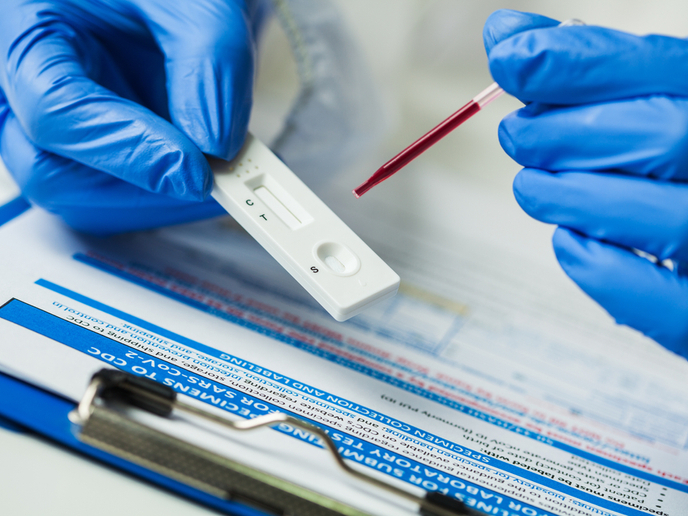Rapid diagnostic test inspired by fireflies could help fight COVID-19
Understanding the course of a pandemic like COVID-19 is crucial for managing future public health crises, and antibody testing is seen by many countries as a pillar of lockdown exit strategies. Thanks to research supported by the three EU-funded projects LUMABS, ABSENS and SwitchProteinSwitch, a team of scientists has developed an antibody-detecting diagnostic test that “uses sensor proteins that produce light by performing the same chemical reaction that is used by fireflies,” as noted by Prof. Maarten Merkx from the Eindhoven University of Technology, host of the LUMABS, ABSENS and SwitchProteinSwitch projects. Explaining the research in a news item(opens in new window) on the European Research Council website, Prof. Merkx says: “In the presence of the target antibody, the sensor protein changes its structure which changes the colour of the light that is emitted from green to blue. The power of this approach is that the test can be done directly in blood, and the signal can be detected with the camera of a smart phone.” He adds: “Part of this project was also to develop a paper-based strip that contains the same testing components - we call it ‘glow-in-the-dark’ paper-based diagnostics.” Prof. Merkx emphasises that the same technique “could also be used to detect the coronavirus, and we have just started to investigate whether this works.” He says: “In order to do this using our original approach, we would need to know exactly what SARS-CoV-2 [severe acute respiratory syndrome coronavirus 2] antibodies look like, but recently we have developed a new type of sensor proteins that could measure all antibodies targeting a specific viral protein. The big question is whether this test is sensitive enough. If it is, the advantage of our technology is that the tests can be done quickly and don’t require expensive equipment.” Prof. Merkx also notes that although their method may not contribute significantly to combatting the coronavirus pandemic in the short term, “it may become relevant if the current crisis continues for a long time.” He adds that it could also help better cope with future pandemics.
Immune response
Antibodies are specialised proteins that help clear the body of invading organisms such as bacteria, viruses and fungi. Several questions have been raised regarding the quality of antibody tests, and experts are unsure how long antibodies remain and whether they have enough power to protect against future infections. In the same news item, Prof. Merkx states: “The underlying assumption is that a person that has had an immune response will be protected against getting the disease again, or at least have a less severe disease. If this is true this would be very important information, e.g. for those that work with vulnerable people, but also to decide whether one could visit one’s elderly parents again or go back to work. While it is expected that having antibodies will be protective, this still remains to be established for the coronavirus, and if so, how long this protection will last.” The LUMABS (Therapeutic antibody drug monitoring using bioluminescent sensors proteins and a smartphone) project ended in November 2018. The ABSENS (Exploring the diagnostics market for simple and fast point-of-care antibody detection) project concluded in 2015, while the SwitchProteinSwitch (Engineering protein switches: sensors and regulators for biology and diagnostics) project finished in 2016. For more information, please see: LUMABS project(opens in new window) ABSENS project(opens in new window) SwitchProteinSwitch project(opens in new window)



